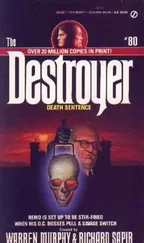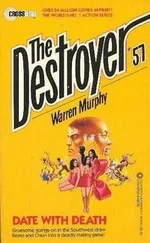Then he cleaned up his stone floor with an industrial-grade cleanser and warm water and hammered the 1.2-meter oak beam into the ceiling of the new attic room he was building. In the ceiling, he wondered if the beam did not indeed need flanges.
He drove into Oslo in his green Mercedes sports car and sent a telegram to a small shipbuilding firm in Saint Mary's Axe, London.
He had always wondered why Number One had wanted such an expensive network. Then, when he found out that the great ship would house the United Nations, he assumed that Number One represented some government spy apparatus.
But when the killings started and when everyone on television and in the papers said it was the work of a liberation front for a people who had not existed for hundreds of years, he too began to wonder what it was all about. There was too much money involved, however, to wonder too hard.
Also he did not have long to ponder the question. On the way back to his home, a car pulled him over to the side of the road. He assumed it was a police car and automatically offered out his license through the window. It came back very qnickly into his face, driven by a .45-caliber slog that enmeshed the paper fibers into his brain on its way out the back of his skull along with a nice piece of his occipital lobe.
CHAPTER SIX
Demosthenes Skouratis did not wish to see reporters. He did not wish to dine with the Prince of Monaco nor the designer, Saint Laurent. Nor did he wish to allow the tables at any number of gaming resorts to enjoy his presence. He did not answer any cablegrams from the beautiful women of his life. He did only what business was necessary to keep his empire from dissolving in its own fiscal complexity.
Otherwise, he kept his yacht, Tina, on the high seas and avoided port. He ate only what his personal physician said was the minimum to sustain life. He slept in twenty-minute gaps during the day. At night, he paced the teakwood decks. He did not converse with the captain about the seas as he normally did when he could not sleep. Every so often he would scream out at the black Atlantic. He walked until he was tired enough for a blessed twenty minutes of sleep and then he would return to the decks again. During the day, he spat at the sun.
It was a trained crew and part of their special training was to not think about what the great Demosthenes Skouratis did. Nor did they discuss it. One who worked for Mr. Skouratis did not idly talk about Mr. Skouratis, even though everyone knew he was going, day by salty day, as mad as a bee in a bottle.
Fifty miles outside of Morocco, in the Mediterranean, the yacht Tina picked up a passenger from the yacht Corning. The passenger wore a dark suit and white shirt with muted tie. He was bald, thin, and wore rimless spectacles. He was moderately seasick, his stomach kept settled only by his Swiss willpower. He was a banker. He was one of Mr. Skouratis' primary bankers.
The crew did not know it but Demosthenes Skouratis owned the bank, whose main purpose was to make him the cheapest loans possible with other peoples' money.
Skouratis met his banker in a stateroom. The Greek wore a towel around his gross hairy midsection. He had not shaved for three days and his face looked like furry tar paper with dark grape lips set in to the center to spew curses with.
The banker did not have to disguise his dismay at the sight of Skouratis drowning in despair before his eyes, because the banker did not feel dismay. It was not really a very Swiss emotion. It was the sort of thing one lived very well without. Arabs, Jews and Greeks lived with those emotions and it certainly hadn't done them any good, the banker thought. The Italians never settled down long enough for really good depression and the Swedes committed suicide, almost as a relief from boredom. The banker never understood why the world was not like Switzerland, but he also did not care very much. It was enough that Switzerland was Swiss.
First, he wished to convey the congratulations of the bank's board of directors to Mr. Skouratis. Mr. Skouratis had taken a financial disaster and, by his genius, had transformed it into a profit of 28.3 percent, devaluation of the dollar figured in.
For a minimum of gifts to Third World delegations, Skouratis had foisted the great hull on the United Nations. By his genius, he had devised the argument used—that America was too racist to house the United Nations—and had brilliantly maneuvered home the votes. Now, as its share of the ship cost, the United States was paying hundreds of millions to have itself castigated before the world as racist, which was fine because that money was now in Mr. Skouratis' hands. The last transfer of funds had been consummated and that was what he had come to report. Felicitations from the board of directors.
"You will always be comfortable," said Skouratis, "but you will never be really rich."
"Mr. Skouratis?" said the banker.
"You will never be very rich because you will never be very poor."
"Sir?"
"What I am saying, you dried-out cadaver," yelled Skouratis, "is that you know numbers. You do not know people. I know numbers and people. You do not know me, but I know you."
Skouratis hoisted his runted bulk from the silk pillow he sat on and crushed Maalox cubes into water until the substance became milky white. He swallowed the full glass of it.
"I know numbers as good as you, banker. Do you think I kept that massive hull afloat at seventy-two thousand dollars a week for a profit? It was the stupidest business venture north of Tangiers. Did you know I thought it was stupid? Did you know that I was aware it would make more sense to scrap the ship?"
"We had made reports to you that it was economically unfeasible," said the banker. He did not sweat on this hot Mediterranean day. Skouratis glistened like a sausage. He put down the empty glass of his stomach medicine that brought the cooling of his belly fires for a few minutes.
"The great ship—and if you really knew me, you would know this—was not a business venture."
"But we did make a profit," said the banker.
"Profit, profit. Of course we made a profit. We could have made a greater profit in other ventures. Why did I choose to build the biggest ship in the world in the first place? Did you ask yourself that?"
"Because you are a shipping man."
"I am also a metals man, a stocks man, a land man, a money man, I built that ship to be the biggest. To be the most important. I built it for pride. After the first hundred million dollars, banker, money is all ego. The interest alone on one hundred million, in a modest investment, is two hundred thousand a week. Do you not think I could live lavishly on that? Do you not think my needs are taken care of with that? Ego. Pride. Hubris, if you will. I built that ship because it was the biggest, not the most intelligent."
Skouratis waited, looking at the banker. This was the Swiss mind at work. He gave an explanation; it fit; why look further? But further was at the bottom of everything.
"You might want to ask why I wanted the biggest ship. And I might tell you there is one man I want to be bigger than."
"Yourself?" asked the banker in a wild venture into philosophy.
"Don't be an ass. That's for athletic teams and other muscle-bound idiots. I wanted to be bigger than Aristotle Thebos."
"Ah, yes. You are friendly competitors."
"Friendly, ha ha ha."
"But you never raid each other financially. So I assumed you were friendly."
"Does the wolf pick fights with the bear? No. The wolf attacks the deer and the bear attacks the salmon. That is why we do not raid each other financially. We are too dangerous for each other. We fight spiritually. And I have lost."
The banker had been aware of the party Thebos had thrown at Skaggerac when the Skouratis ship had first appeared to be a giant white elephant. He had wondered then why Thebos had done it.
Читать дальше


